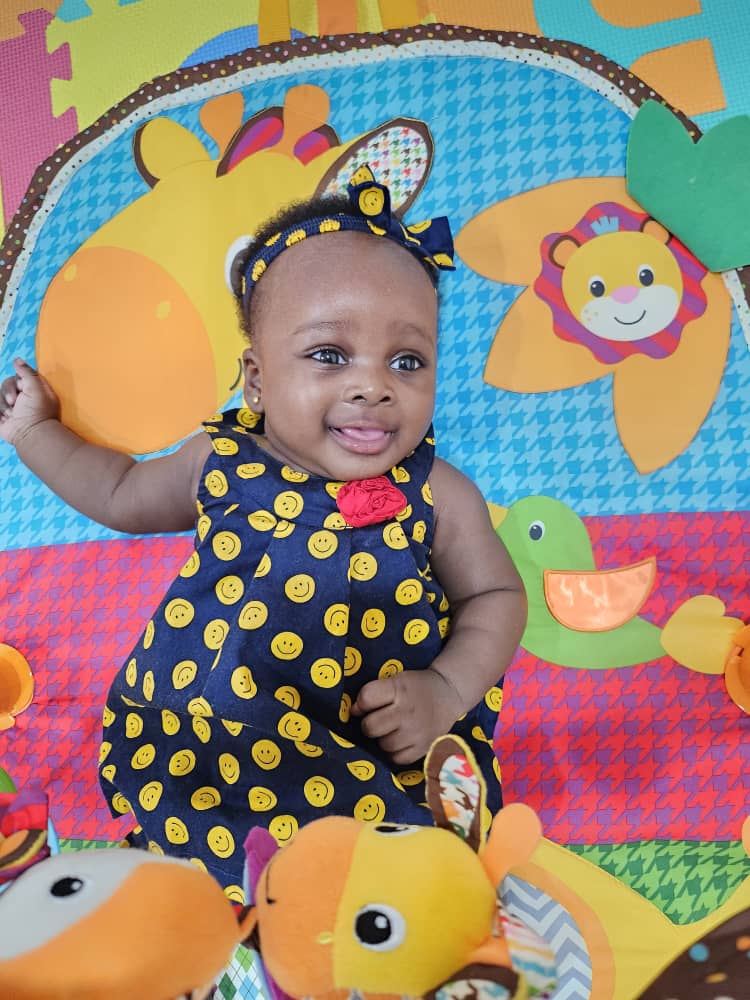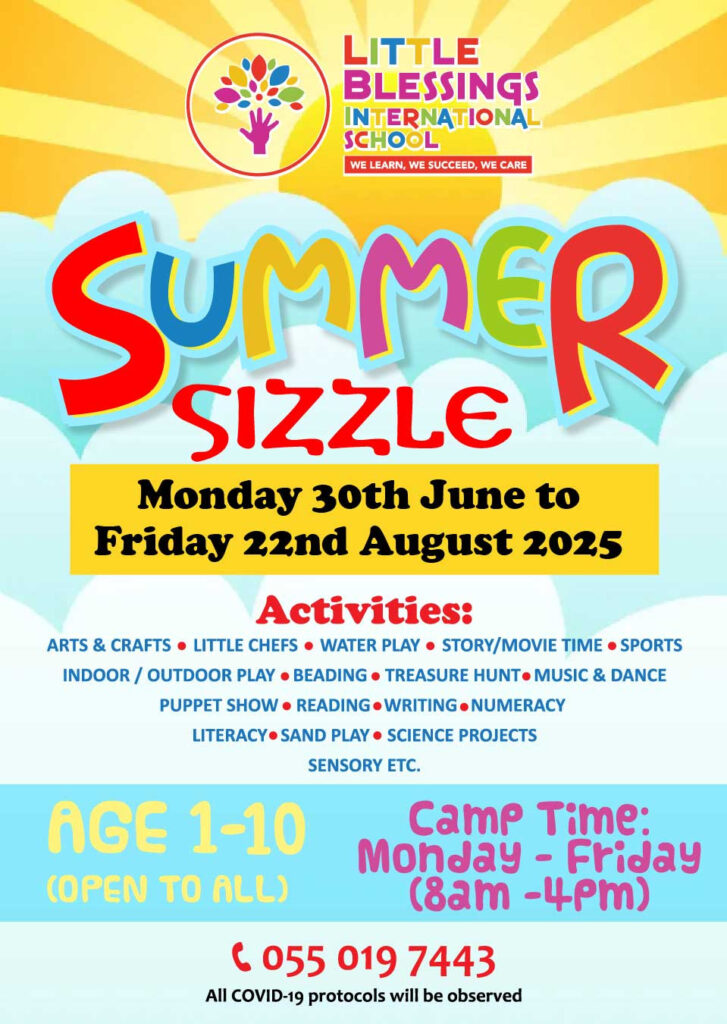Infant ( Baby Group )
Our playgroup classroom offers a state of the art design and resources in a very cozy atmosphere which is conducive for your child’s stay. Our playgroup caters to children between the ages of 3 months to 1 year old, a crucial stage in their development where every experience shapes their future.
What sets us apart is our commitment to holistic learning. Beyond traditional activities, we embrace sensory exploration, fostering creativity, curiosity, and confidence in every child. Our dedicated educators ensure a nurturing environment where your little ones thrive, making each day an adventure of growth and discovery. Our small class size and competitive rate distinguish us from our competitors. We can boast of an in-house registered nurse stationed in our play room, who provides all-rounded care and support to our caregivers and babies.

Benefits of Our Playgroup
- We provide a safe and nurturing environments where young children can play and learn.
- We enhance healthy early brain development through play.
- We provide opportunities for children to create, invent, reason and problem solve.
- We provide opportunities to build attachment between adults and children as they play together, and share time and experiences.
- We help children to learn social skills as they negotiate with peers, resolve conflict, take turns, share and make friends.
- We help children to build their confidence and resilience to enable them to cope with new situations, manage stress and adapt to change.
- Our playgroup helps them to understand more about how the world works.
- They learn to care for others.
- They develop physical skills.
- They develop social skills.
- They work on their language and communication.
- They feel happy, safe, and loved.
| ACTIVITY | BENEFIT(S) |
3 – 5 MONTHS OLD |
|
| Tap along | This game is great for developing listening skills. Babies delight at hearing their caregiver’s voice and the tapping adds a new way to experience singing songs together. |
| Chit chat |
This back and forth helps the child to learn language and conversation skills – and they love the attention they get from their caregivers! Making eye contact always shows babies that we want to communicate with them and helps support learning. |
| Tummy Time | Helps baby to build neck, head and upper body strength to crawl and pull to stand when they’re older |
| Face Time | This involves making eye contact and getting the baby to follow eyes and turn their head. It helps to build baby’s neck strength and head control. |
6 – 8 MONTHS OLD |
|
| Let’s get rolling! | This game helps support your baby’s gross motor skill development by working on a big milestone like rolling over. |
|
Texture talk |
Giving your baby new sensory experiences helps them to develop their sense of touch and introducing new words helps to build their rapidly growing vocabulary. |
| Story Time | Reading aloud to children helps develop their language skills, expands vocabulary, stimulates imagination, and fosters a love for reading. |
9 – 11 MONTHS OLD |
|
| Copy cat | By showing interest and placing importance in what babies does, you’re helping them to develop their social and emotional skills. |
|
Follow the leader Give babies commands to follow like “clap your hands!” and show them how to do it. If they repeat the action, show your excitement and pride by smiling and praising them. |
Practicing simple instructions helps babies learn how to follow directions. |
| Sensory Play | Sensory play engages multiple senses such as touch, sight, smell, and sometimes taste, providing rich sensory experiences that stimulate neural pathways in the brain. Activities involving different textures, colors, smells, and tastes stimulate sensory exploration, cognitive development, language acquisition, and emotional regulation. |
| Music and Movement | Dancing, singing, and playing musical instruments enhance coordination, rhythm, social interaction, emotional expression, and cognitive development. |
| Outdoor Play | Playing outdoors allows children to explore their environment, develop gross motor skills. Going outdoors helps to expose your baby to new sights and sounds, helping them to develop their listening, visual and social skills. |
| Pretend Play | Role-playing activities encourage imagination, social skills, empathy, communication, cooperation, and understanding of social roles. |
| Dramatic Play | Providing props and costumes for imaginative play supports creativity, language development, emotional expression, social skills, and understanding of different roles and perspectives. |
| Art and Craft |
Engaging in artistic activities promotes creativity, fine motor skills, hand-eye coordination, self-expression, and problem- solving abilities. |
| Water Play |
Playing with water promotes sensory exploration, hand-eye coordination, social interaction, understanding of scientific concepts, and cooling off during warm weather. |
| Feeding / Mealtimes |
Feeding times offer an opportunity for children to explore a variety of foods and teacher initiated mealtime conversations offer rich language-learning opportunities for children. |
12 MONTHS OLD |
|
| Hide and search | This kind of play teaches baby all about object permanence: Even if we can’t see it, it doesn’t mean it’s gone forever! |
| Words, words, words! |
By naming things that baby is interested in, we are helping them to learn new words. Paying attention to things they point to also teaches them that their needs matter and helps to build their self-esteem. |
| Water wonder |
This homemade toy helps babies to practice their visual skills. |
NOTE: Most of these activities overlap and are reinforced along the various age groups
depending on which milestone your baby has attained at the time of enrollment.

